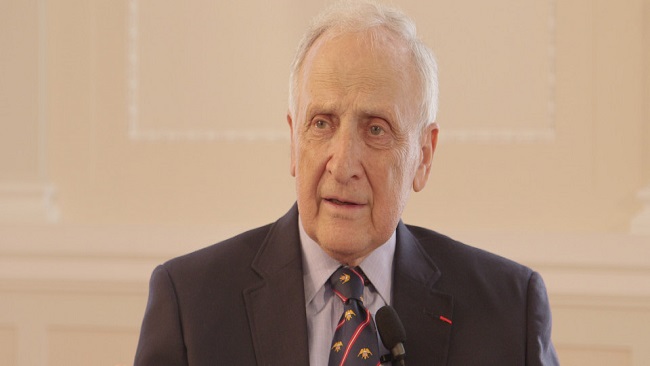Understanding the Ngarbuh Commission Report: Dedicated to Ambassador Herman J. Cohen
That Ngarbuh Commission Report: Vindication of Impunity
My initial reaction to the Cameroun Government report on the atrocity crimes committed against armless civilians in Ngarbuh in Donga Mantum was focused on the Commission recommendations on criminal responsibility for the crimes. I concluded that, to the extent of the Commission recommendations, the report is a whitewash intended to insulate superior civilian and military commanders who planned and authorized the attacks and crimes from individual and superior command responsibility.
The applicable threshold for establishing criminal responsibility is that of “persons bearing the greatest criminal responsibility” and not subordinates physical perpetrators. The report in this case, established that subordinate perpetrators submitted a report to their superiors which was skewed to mask their responsibility for the crimes. Does this justify the exclusion of every commander in the chain of command from criminal responsibility? The answer is no.
Apart from the outcry from the surviving victims and human rights and humanitarian assistance personnel operating in the area which should have warranted the superior commanders including the Senior Divisional Officer and the Governor to initiate investigations, the entire governmental and military higher command structures praised the professionalism of the army and its affiliate militias who committed the crimes. They did not conduct an investigation of the crimes prior to praising them and harrassing witnesses, first responders, national and international human rights and humanitarian organisations personnel who raised the alarm.
The report did not address this conduct and the rationale for the cover up of the crimes. The Commission did not address the false claim that the civilian settlement was an operational base for armed combatants. Even if was, that did not change the civilian character of the civilian settlement. The high command of a professional army should responsibility for failing to establish rules of engagement that protect civilians in armed conflicts. It should define the army in clear terms that do not include civilians. The report did not address this critical matter in the law and customs of war. From the Commission report, the High Command of the Cameroun Army appeared to endorse the justification for the crimes provided by physical perpetrators whose account it has discredited in other significant respects
The voices of the victims in the report are muted or ignored whereas the investigation ought to be about them in order to meet the minimum threshold of credibility.
The report rather than address the crimes, responsibility for the crimes and mechanism for accountability, makes recommendations which if accepted and implemented will celebrate impunity and international criminality.
The report recommends the establishment of a military camp in the affected civilian settlement. This recommendation may knowingly or unintended provide a troubling rationale for the attacks and the crimes. It may be reasonably inferred as a rationale for the attack and that the crimes were ordered to vacate the victims from their ancestral lands to make room for a military encampment. Furthermore, it is a violation of the Geneva Conventions to establish a military camp in a civilian settlement. Worse, it may amount to a crime of deportation to vacate civilians from their ancestral lands and their subsistence economy to establish a military camp. This may amount to interference with a crime base, supporting reasonable suspicion that the report may be a whitewash. The recommendation that the victims be exhumed and given a decent burial may appear reasonable at face value but begs the question. What was the nature and extent of the forensic pathological and ballistic investigation conducted to ascertain the cause of death of each victim and who was responsible for the deaths. This investigation would have provided an answer to the weapons used that caused the death of some or all of the victims. This would have established or rule out the allegation of death by cross fire floated by some Government officials.
Additionally, it would have established the causes of death by gunshots and/or by fire which the report established was set by Cameroun Government soldiers. It appears from this report that no expert or scientific investigation was conducted. There also appears to be no technical intelligence investigation to ascertain the communication chain and content between the subordinate forces deployed to conduct the attack and superior commanders. The identity of the victims both dead and alive appears not to have been the focus of the Commission, so also the identity of the alleged 5 combatants who were allegedly killed in the alleged operation. The alleged members of the militia who participated in the attack are not identified by organization or as individuals. It is not enough to state that they were ten in number. What is important is who they are. What is their relationship with the Government and military operational command?
Finally, I am unpersuaded that rather than recommend physiological treatment for surviving victims for the trauma of the attacks and loss of loved ones, the report recommends celebrating impunity through building a military camp for the military that has admitted responsibility for the attack and the crimes. In similar circumstances, in other situations, monuments are built to honour the memories of the innocent victims and not the impunity of the military establishment responsible for the atrocity crimes.
For these reasons, I strongly urge the international justice and human rights organisations to establish an independent investigation into the Ngarbuh massacres and all other crimes committed in the prosecution of the war in which the Ngarbuh massacre is a component. Failing to do so will give tacit blessings to impunity and a fig leaf of contempt for human life.
By Chief Charles A. Taku





